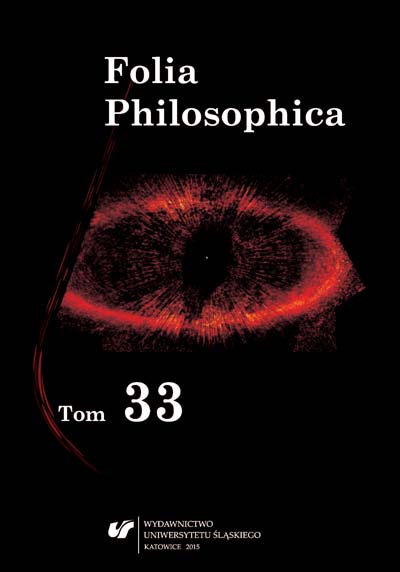Poznanie Dobra jako zwieńczenie Platońskiej dialektyki
Finding Good as the Effect of Plato’s Dialectics
Author(s): Dariusz OlesińskiSubject(s): Philosophy
Published by: Wydawnictwo Uniwersytetu Śląskiego
Keywords: Plato’s dialectics; hypothetical method; catharsis; noesis; Platonic conception of good
Summary/Abstract: In "Politeia", making a distinction between three basic types of good: good only for its own sake, good for its own sake and the additional benefits it may bring, and good only with regard to the benefits it brings (Rep. 357b—d) — Plato is in favour of the second option, thus emphasizing the dual (absolute-relative) nature of the good, which turns out to be essential for the proper understanding of its nature. Hence, the supremacy of the Good over other ideas (its location ‑πέκεινα τ‑ς ο‑σίας), presented in books VI and VII may not be understood as the absolute transcendence of being, but it indicates its borderline status which is the result of its dual nature. As a consequence, the Good also appears as a breaking point of the dialectic cognition — on the one hand, as its final aim, on the other hand, as its each time assumed foundation. The Good cannot be the subject of dialectic’s cognition in the sense that being (idea) is, since it is itself a principle which enables all cognition of the idea. In this context dialectics turns out to be a certain type of catharsis, a method of gradual purification of hypothetical logos, which leads to the discovering of truth that is hidden behind it. In accordance with Plato’s metaphor, it should present Good as the clearest spot of white which does not have any additional elements in it.
Journal: Folia Philosophica
- Issue Year: 2015
- Issue No: 33
- Page Range: 129-143
- Page Count: 15

